On Bellevue's Main Street, businesses look forward to office workers' return
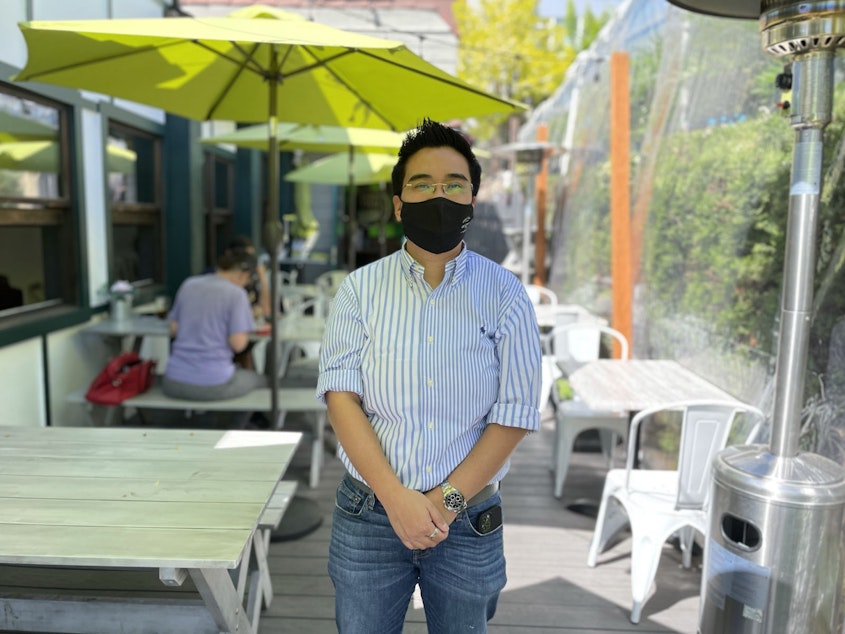
Main Street in Bellevue runs through the heart of a popular commercial district, just south of Bellevue Square. It’s full of mom-and-pop shops.
Business has been slow for many of them. How quickly they recover depends partly on how soon office workers return.
Patrick O’Kelley works for Bungie, a company that makes video games like Halo and Destiny – games where you shoot a lot of robots, aliens and enemy combatants.
Bungie is headquartered in Bellevue. But during the pandemic, Patrick O’Kelley has barely stepped foot in Bellevue. Sometimes, it feels like he never leaves the house. “My family – we joke about it, like we’re in our ‘primate enclosure,’” he said.

Before the pandemic, O’Kelley spent a lot of time and money in Bellevue. After commuting from Seattle, he’d take meetings in the park, or take a new employee out to lunch and expense it.
O'Kelley had a favorite restaurant, near the office. “I knew all the waiters,” he said. “I’d come in and they’d make me an Arnold Palmer and just put it up on the counter. My chicken and broccoli – it’d just be there, unless I said ‘No, wait I want to do something different today.’”
Sponsored
Sometimes, when he wanted to shake things up, he’d head down to Main Street. That was where coworkers went to celebrate product launches and other events.
Sponsored
Fern Thai is one of the restaurants there. Kay Fuengarom is one of the owners. She says before the pandemic, her restaurant would fill up with office workers at lunch time. Now, her lunch is kind of dead. “We actually have a lunch menu that we use, but since the offices are closed, we took that menu away,” she said. “And now, we’re just serving dinner menu all day.” It’s a way to cut costs and make a little more money from the customers who do come.
Fuengarom says outdoor dining has helped her partially recover. But still, she’s keeping a close eye on news reports for any sign that office workers could soon return. “Oh, it would be great, it would be nice. It’s very important,” she said. “And we could launch our lunch menu back on.”
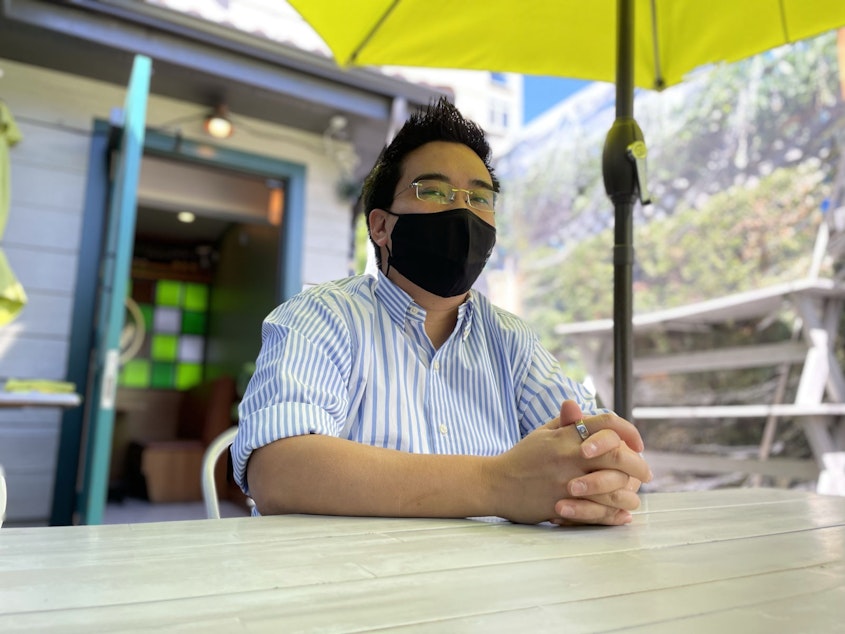
Restaurants are important, not just because they support the people that work there, but because they support other businesses, too.
For example, Kane Chawla runs a small tailor shop next to his family's Indian restaurant on Main Street. He said he doesn't depend on office workers to support his business. But he does depend on diners, some of which work at companies nearby.
Sponsored
Before the pandemic, the restaurant was a big source of new customers. Customers would come to dine and would accidentally discover the tailor shop next door. When they'd see him in his custom shirt and sport coat, they'd be hooked.
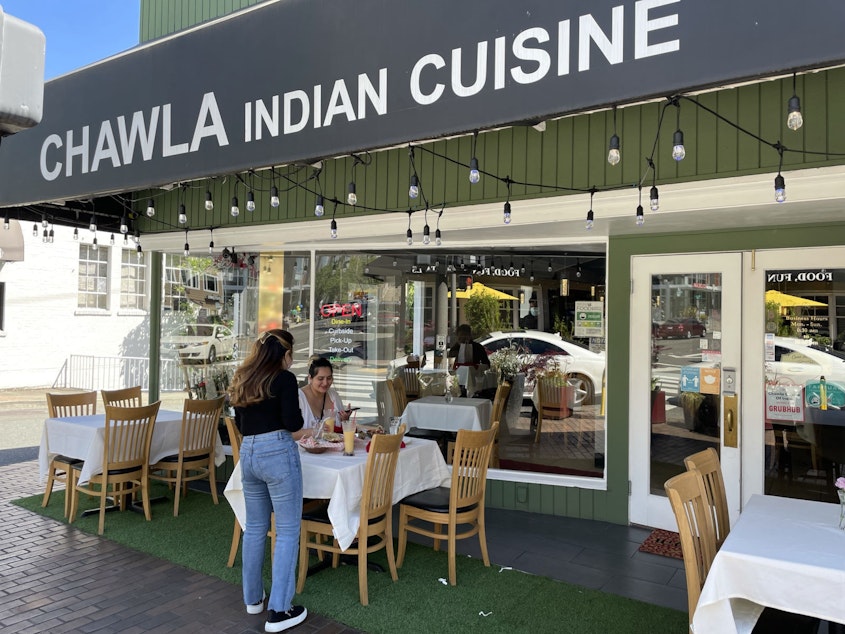
During the pandemic, dining dropped off, and the tailor struggled. "Nobody was around," he said. "We were basically doing nothing during the pandemic."
Now, dining has begun to return, and Chawla expects his customers to rediscover him. In order to help move things along, he's been spending longer hours in the shop lately, just so people will see that he's open. "We're ready to serve," he said.
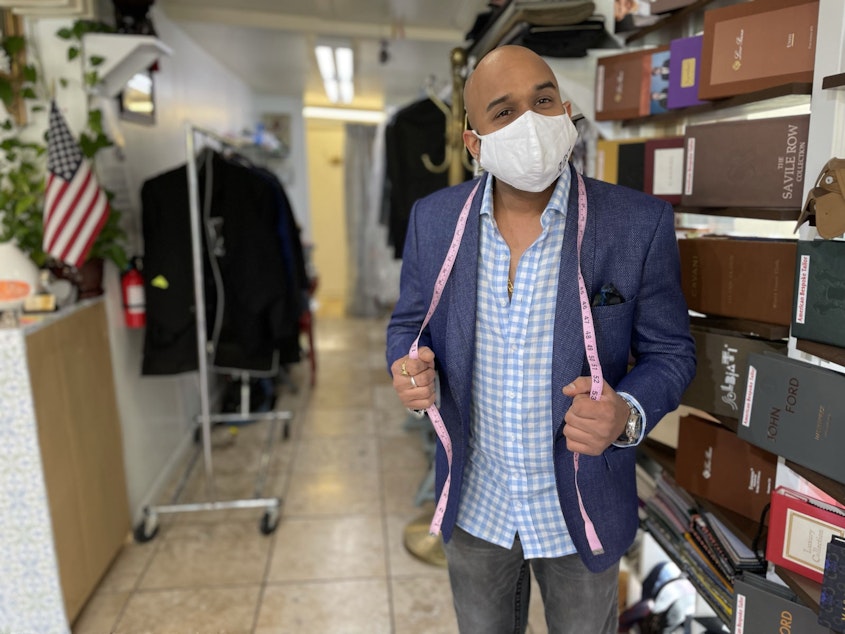
Sponsored
Up and down Main Street, restaurants and stores are counting on the return of workers, directly or indirectly. Businesses have pivoted. They’ve adapted. Many have survived. But they’re still missing the reliable source of revenue that office workers bring.
Ann Perinchief owns a kitchen store called Whisk. When people stopped entertaining, the demand for dishware plummeted. So Perinchief pivoted to selling lots of pasta makers and equipment for home bakers.
Before the pandemic, she had another income stream that helped even things out: Companies would sign up for in-person cooking classes at Whisk as a team building exercise. Not anymore. “I have one that’s next week that I’ve probably moved 5 times in the last year,” she said. “Because no one expected, right? We went from April to June, and they didn’t come back to work. You just keep moving it along… until the people come back.”
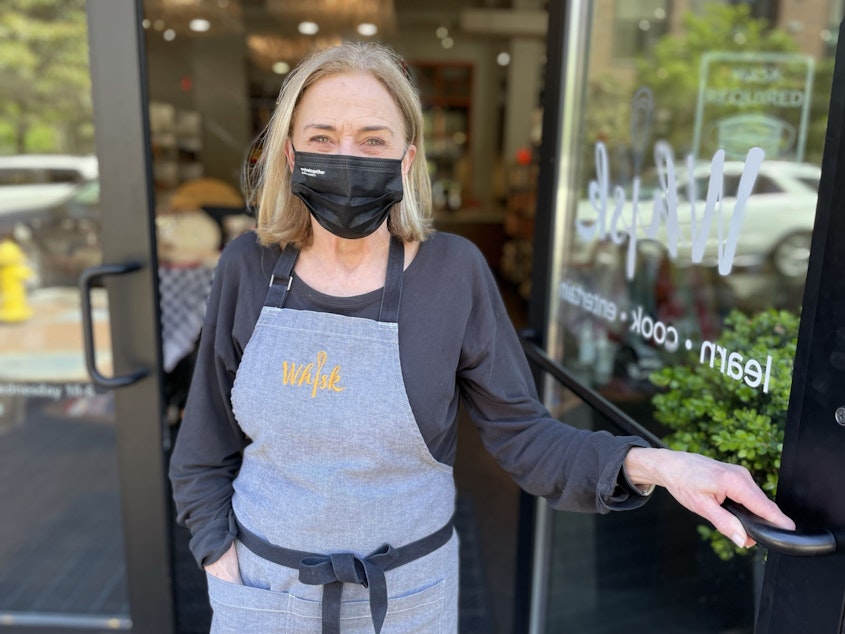
But Perinchief knows they will come back. Amazon has said its workers will return this fall. And with so many companies growing in Bellevue, they’ll return in greater numbers than before the pandemic. “New people coming in is always an exciting thing,” Perinchief said.
Sponsored
Recently, the feeling in Bellevue changed, she said. “You feel like you’re in a metropolitan city.”
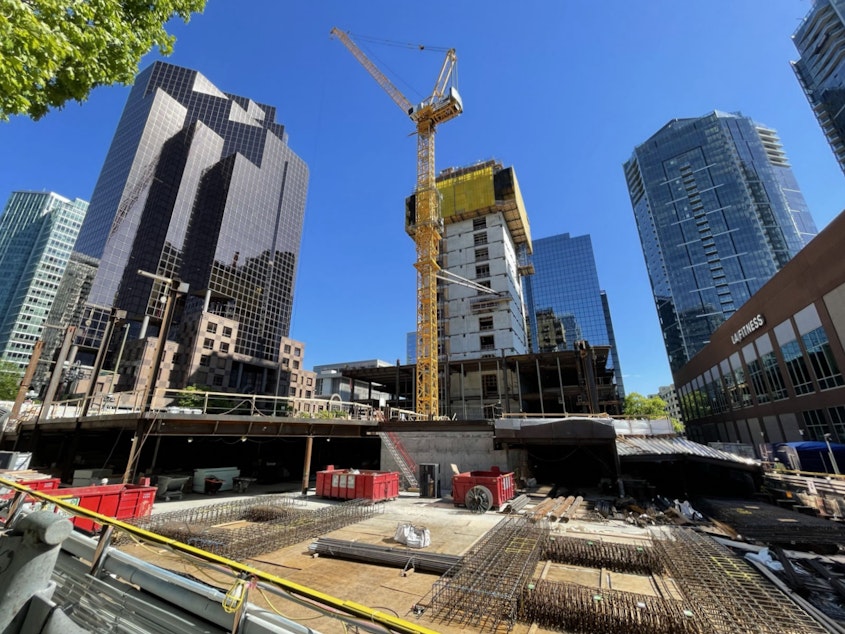
All over downtown Bellevue, you can see and hear new towers going up. They signal that however hard the last year has been, companies are investing millions to grow here. Taxpayers too: Light rail opens here in 2023.
But some people in Bellevue are feeling anxiety about that future.
Taylor Hobbs and Braeden Turner bought some ice cream just off Main Street, to celebrate an anniversary. As they sat on a bench in Downtown Park, Hobbs spoke of her fear: “I’m concerned with a lot of bigger companies coming in, that the salaries that they’re offering to tech people will push the other people that are currently living there out,” she said. “For example, I work as a researcher at the University of Washington. And my salary is nowhere as competitive. So as rent prices come up, I can just imagine that there might be a cultural shift coming.”
Sponsored
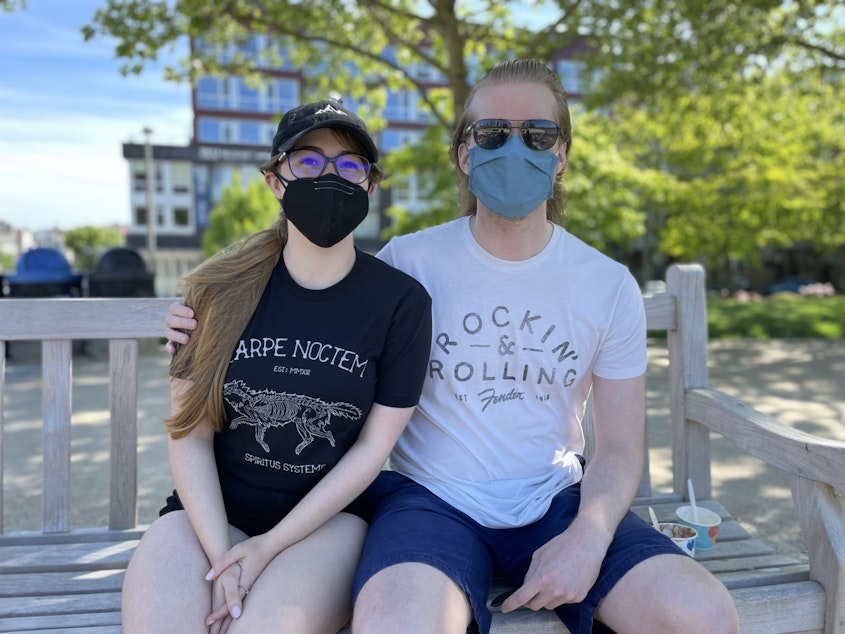
Amazon and Microsoft have both pledged to help pay for affordable housing in Bellevue. But of course, pledges haven’t solved this problem.
Meanwhile, Patrick O’Kelley, the guy who works at Bungie, is already planning out the first thing he’ll do when he returns to his Bellevue office. “I want to go out with a bunch of my work colleagues, and have dinner, and just talk socially, because we’ve not had the opportunity to do that in over a year,” he said, “and I think we’ve missed each other.”
But he’s going to have to pick a new favorite restaurant. Because, while he was gone, that restaurant he loved, the one that knew his favorite order, closed permanently.
This story is part of KUOW's series The Main Street Project, which tracks economic recovery in our region one street at a time. Hear more stories in the series and submit an idea for an important street we should visit at KUOW.org/mainstreet




